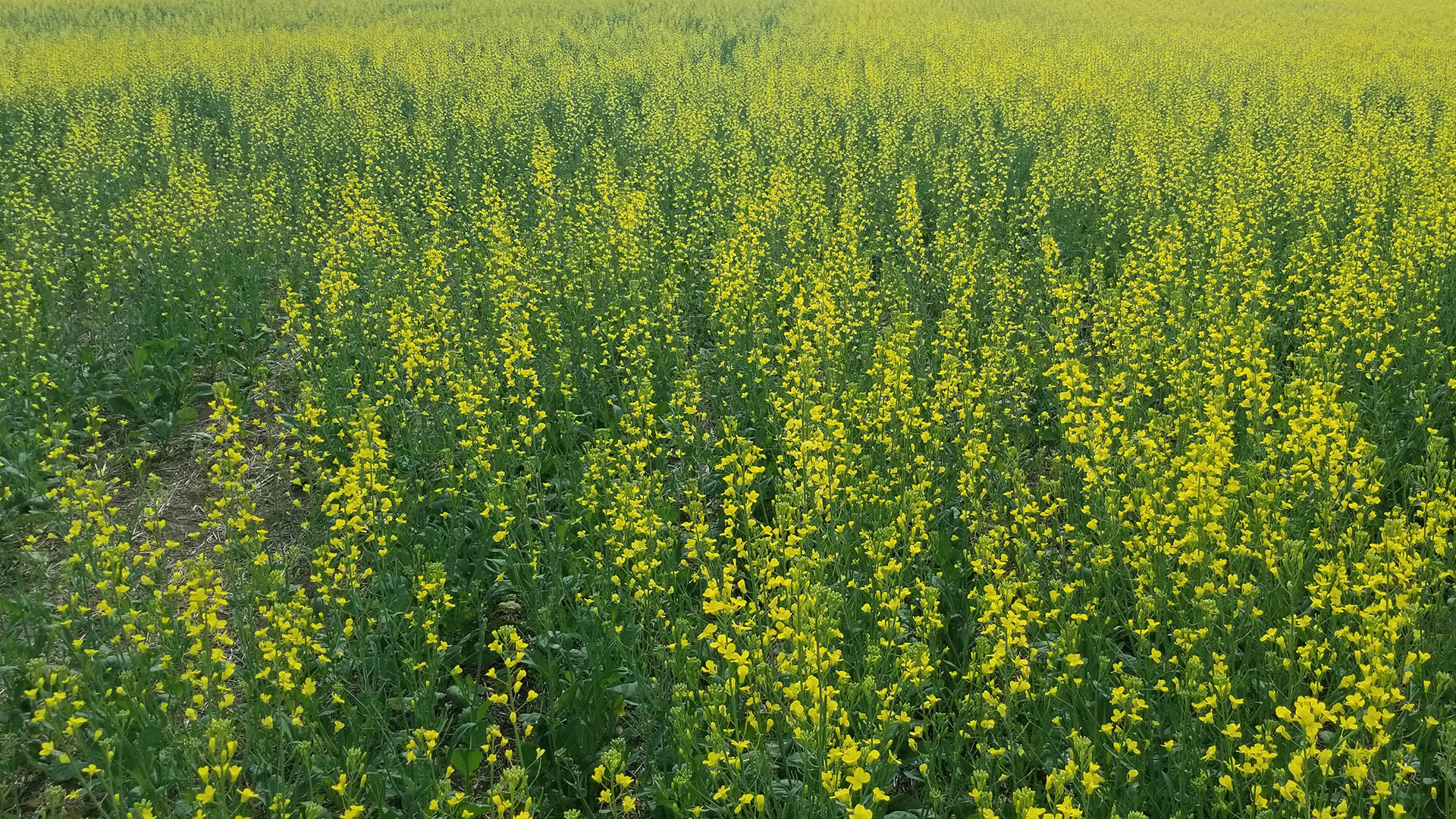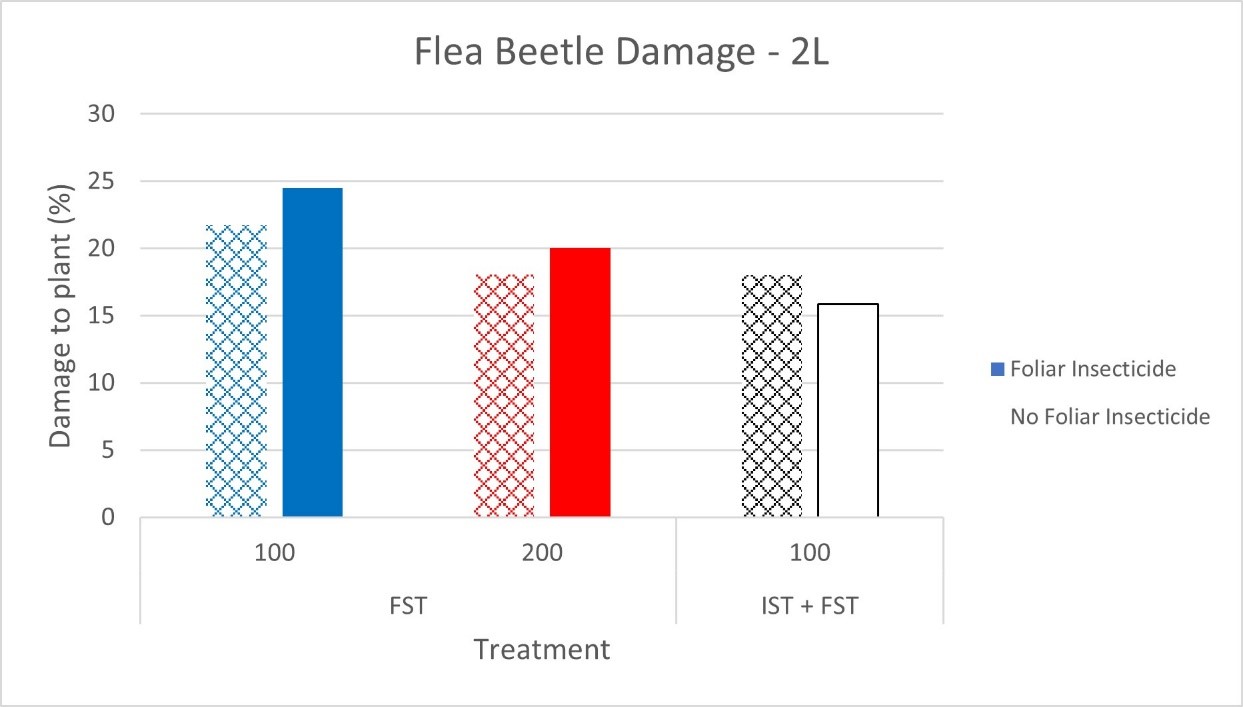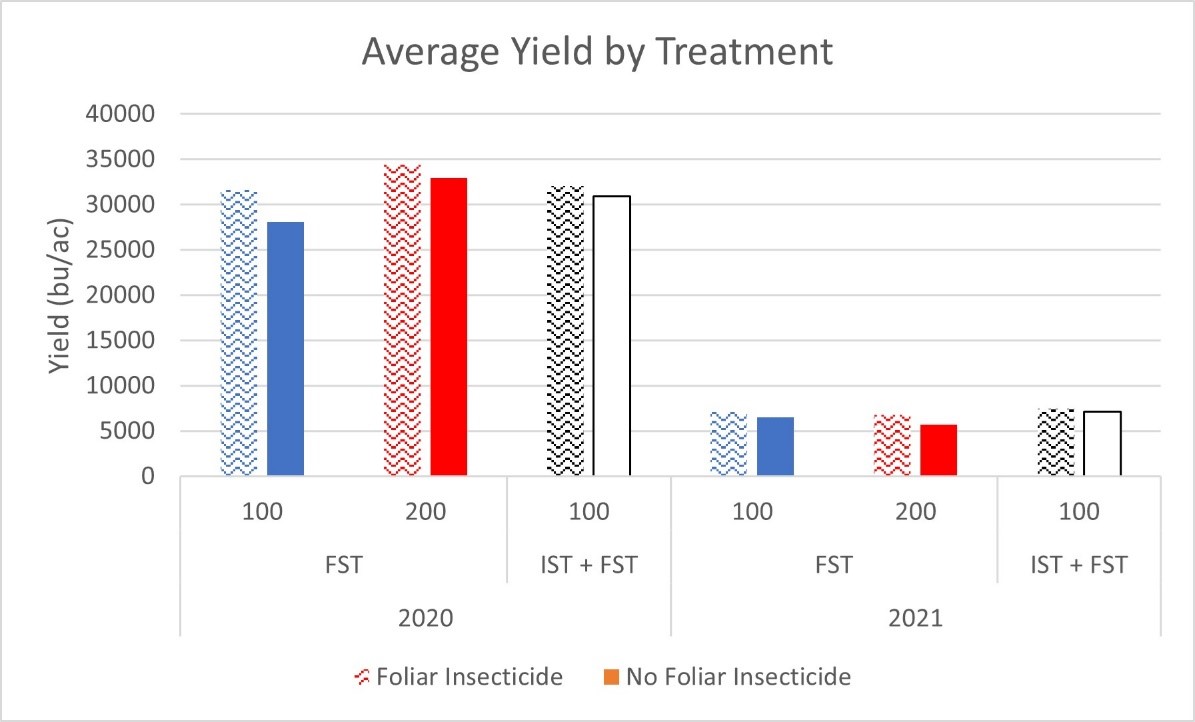Methods
|
Collaborators or Locations
|
| Northern Alberta x2 sites |
AAFC, SARDA - Fahler, AB |
| Southern Alberta x2 sites |
Farming Smarter - Lethbridge, AB |
|
Treatments
FST = Fungicide Seed Treatment,
IST = Insecticide Seed Treatment
|
|
FST + IST at 100 seeds/m2 WITH & WITHOUT foliar insecticide
|
|
FST at 100 seeds/m2 WITH & WITHOUT foliar insecticide
|
|
FST at 200 seeds/m2 WITH & WITHOUT foliar insecticide
|
|
Insect monitoring conducted with insect counts via sticky card insect traps, as well as plant damage assessments at cotyledon stage and at 2-leaf stage.
|
|
Grain yield and 1000-kernel weight were measured at harvest
|
|
Lethbridge crop rotation will be wheat, canola, durum and then pea.
Four field scale on farm research trials were completed in each 2020 and 2021. Two were located in southern Alberta, and two were located further north, and were facilitated by SARDA. The site is placed near the edge of the field whenever possible - where flea beetle risk is greater. Plot size is determined by the field and the equipment that is available.
Measurements
- Background soil fertility (temp, moisture, physical characteristics)
|
- Emergence and plant density
|
- Flea beetle counts via sticky cards
|
- Flea beetle damage ratings
|
- Canopy closure at solstice
|
|
- Yield (collected with weigh wagon as well as geo-referenced yield)
|
|
- Collected seed samples to assess seed quality (protein, oil content, green seed, etc.)
|
|
|



